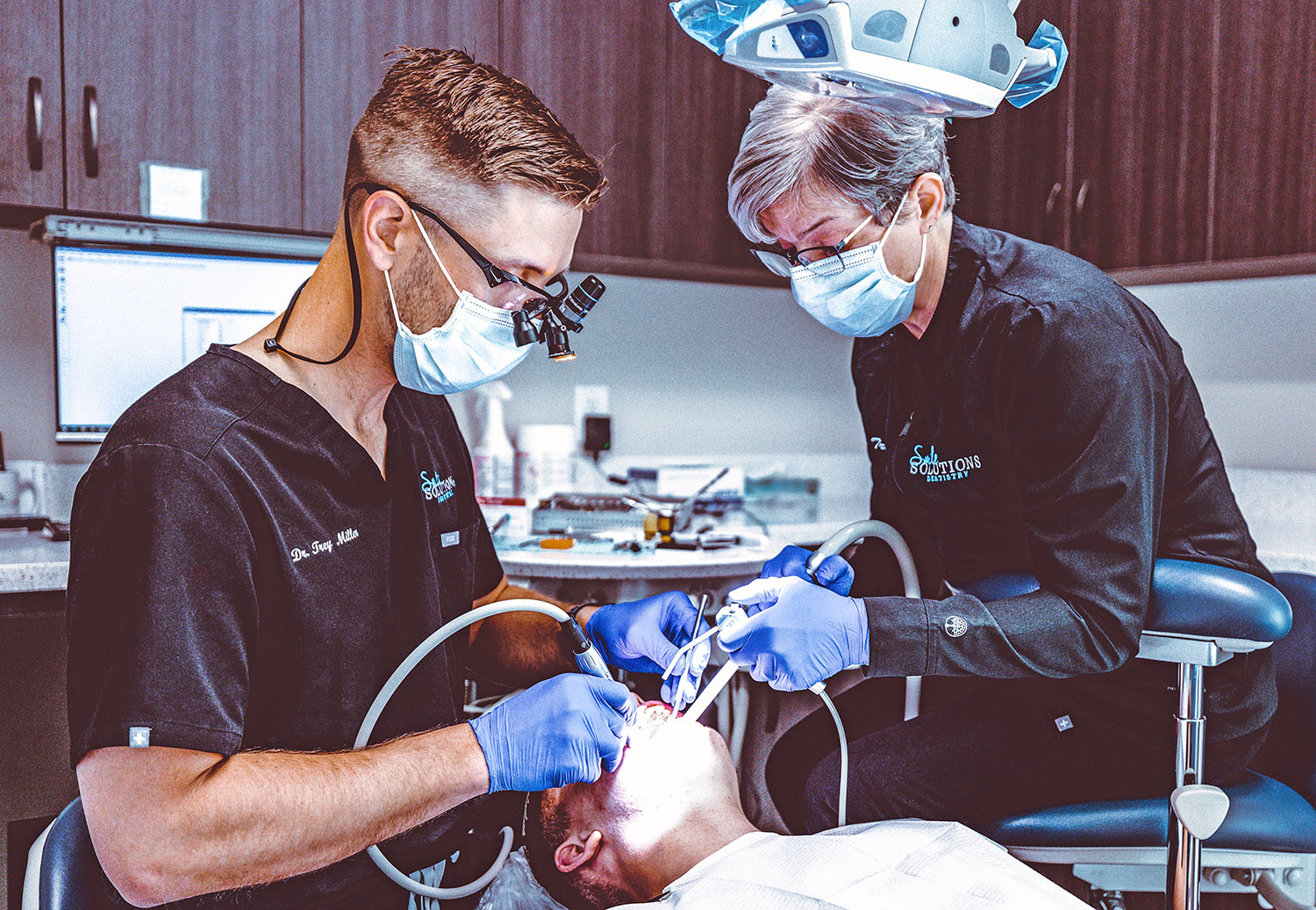Exploring Benefits, Advantages, and Alternatives to Dentures
Losing teeth can be a challenging experience that impacts not only your oral health but also your self-esteem and quality of life. Fortunately, modern dentistry offers a range of solutions to restore your smile and bring back your confidence. Among these solutions, dentures stand out as a time-tested and effective option for replacing missing teeth. In this guide, we’ll explore the benefits, advantages, and possible alternatives to dentures, helping you make an informed decision about your oral health journey.
Benefits of Dentures
1. Restored Aesthetics: One of the primary benefits of dentures is their ability to restore your smile’s appearance. Missing teeth can cause a sunken or sagging facial appearance, which dentures help prevent by providing support to your facial muscles and structures.
2. Improved Functionality: Dentures play a crucial role in restoring your ability to chew and speak properly. Missing teeth can make eating certain foods a challenge and lead to speech difficulties. Dentures allow you to enjoy a wider variety of foods and communicate more effectively.
3. Enhanced Confidence: A complete and beautiful smile can have a significant impact on your self-esteem and confidence. Dentures give you the freedom to smile, talk, and laugh without worrying about gaps or missing teeth, boosting your overall sense of self-worth.
4. Affordable Solution: Compared to some other tooth replacement options, dentures are generally more affordable. This makes them accessible to a broader range of individuals seeking to restore their smiles without breaking the bank.
5. Versatility: Dentures come in various types to suit different needs. Whether you’re missing a few teeth, an entire arch, or both upper and lower teeth, there’s a denture solution tailored to your situation.
Advantages of Dentures
1. Non-Invasive Procedure: Getting dentures doesn’t involve surgery or invasive procedures. The process typically includes taking impressions of your mouth, designing custom dentures, and fitting them comfortably over your gums.
2. Quick Results: Compared to some dental treatments that require multiple visits, dentures often provide relatively quick results. Once your dentures are ready, you can experience an immediate transformation in your smile and oral function.
3. Reversible Option: If your dental needs change in the future or you decide to explore other options, dentures are reversible. This means that you have the flexibility to adjust your treatment plan based on your preferences and evolving oral health.
4. Easy Maintenance: Caring for dentures is straightforward. Regular cleaning and maintenance routines, along with proper oral hygiene practices, can help extend the lifespan of your dentures and keep your smile looking and feeling great.
5. Time-Tested Reliability: Dentures have been used for centuries to restore smiles and improve quality of life. With advancements in materials and techniques, modern dentures offer improved aesthetics, comfort, and functionality.
Possible Alternatives to Dentures
While dentures are an excellent solution for many individuals, it’s essential to explore alternative options to determine what suits your specific needs:
1. Dental Implants: Dental implants are surgically placed artificial tooth roots that provide a sturdy foundation for replacement teeth. They offer exceptional stability and can last a lifetime with proper care. Implants are ideal for those seeking a more permanent tooth replacement option.
2. Dental Bridges: Dental bridges are fixed restorations that replace missing teeth by anchoring to adjacent natural teeth. They are an effective option for individuals with healthy teeth on either side of the gap. Bridges offer good aesthetics and improved chewing function.
3. Implant-Supported Dentures: Combining the benefits of dentures and dental implants, implant-supported dentures offer enhanced stability and function. Dental implants are used to anchor the dentures securely in place, preventing shifting or movement while eating or speaking.
4. Partial Dentures: Partial dentures are recommended when you have only a few missing teeth. They consist of replacement teeth attached to a metal or acrylic framework that clasps onto existing teeth for support.
5. Veneers and Crowns: For individuals with damaged or discolored teeth, veneers and crowns can provide targeted restoration. While not suitable for extensive tooth loss, they can be combined with other treatments for a comprehensive solution.
Conclusion
Dentures have a rich history of restoring smiles and enhancing quality of life. With benefits ranging from improved aesthetics to enhanced functionality, dentures offer a versatile and non-invasive solution for tooth replacement. While dentures are a fantastic option, it’s essential to consider alternatives such as dental implants, bridges, and implant-supported dentures to determine the best fit for your individual needs.
If you’re interested in a consultation, you can schedule an appointment and Dr. Trey Miller or one of his colleagues will happily see you and see id dentures are a good solution for your unique individual situation.




